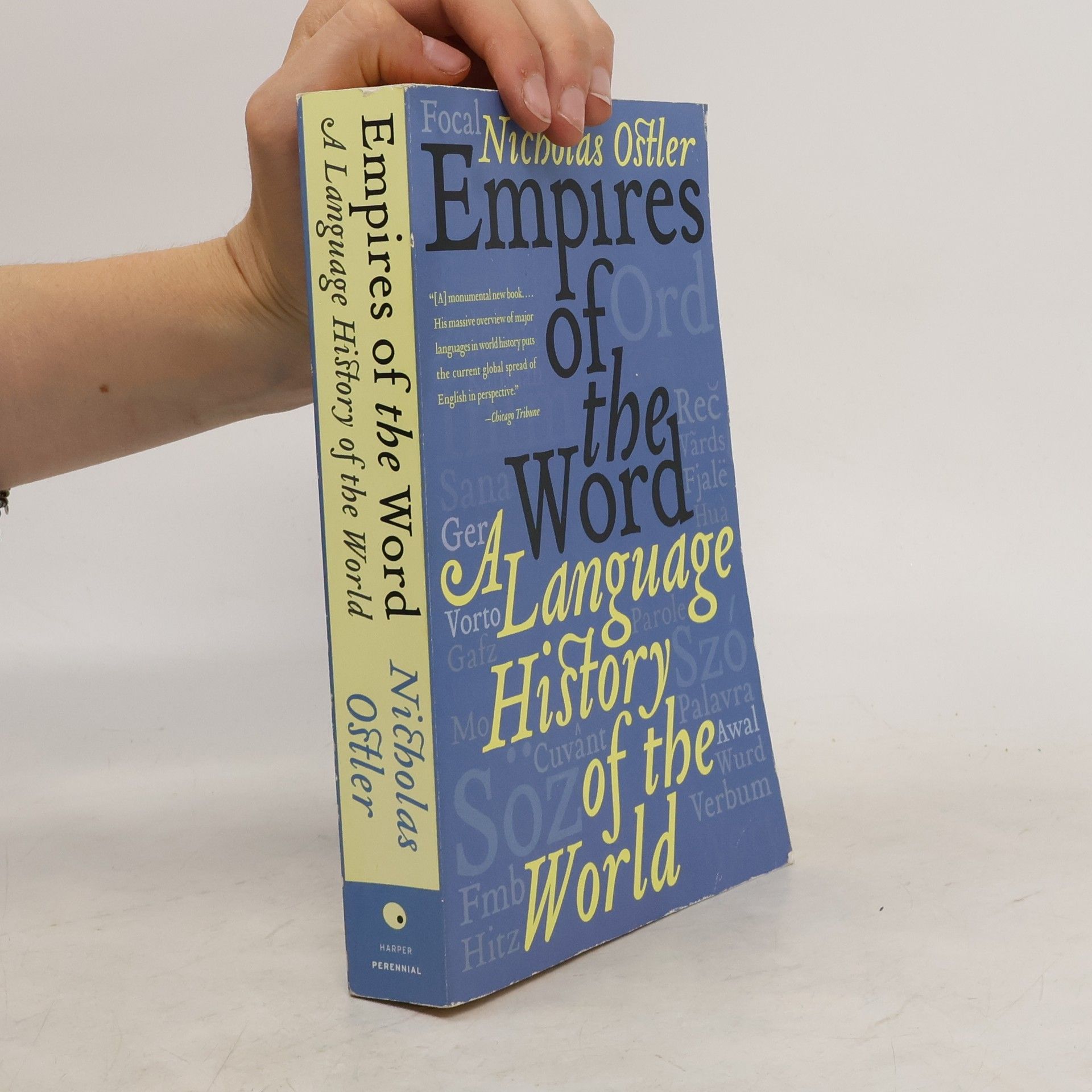Er ist der neue König – und geheimer Superheld Kaum hat Alfie den Schwarzen Drachen besiegt und endlich den Thron Englands bestiegen, erwartet ihn und seine Freundin Hayley die nächste große Aufgabe: Eine Armee untoter Wikinger wütet im Land. Alfie muss sich wieder in den geheimen Superhelden Defender verwandeln, um das Königreich zu verteidigen. Eine dunkle Macht hat die muffigen Krieger aus dem Jenseits wiedererweckt. Zum Glück hat Alfie ungeahnte Verbündete … Das zweite spannende Abenteuer des Defenders! »Voller Action und unverschämt lustig!« Derek Landy (Autor von »Skullduggery Pleasant«) Alle Bände der Serie: Band 1: Defender – Superheld mit blauem Blut. Der Schwarze Drache Band 2: Defender – Superheld mit blauem Blut. Angriff der untoten Wikinger
Nicholas Ostler Bücher
Nicholas Ostler ist ein britischer Gelehrter, der sich intensiv mit der Geschichte und Verbreitung von Sprachen beschäftigt. Seine Arbeit dokumentiert akribisch, wie Sprachen menschliche Zivilisationen geformt haben und von ihnen geformt wurden, und untersucht die Dynamik ihres Aufstiegs, ihrer Dominanz und ihrer Transformation über verschiedene Kulturen und Epochen hinweg. Ostlers Ansatz betont Sprache nicht nur als Kommunikationsmittel, sondern als entscheidenden Akteur in der Menschheitsgeschichte, der unsere Gedanken und Weltanschauungen widerspiegelt und beeinflusst.





Empires of the Word
- 640 Seiten
- 23 Lesestunden
Nicholas Ostler's Empires of the Word is the first history of the world's great tongues, gloriously celebrating the wonder of words that binds communities together and makes possible both the living of a common history and the telling of it. From the uncanny resilience of Chinese through twenty centuries of invasions to the engaging self-regard of Greek and to the struggles that gave birth to the languages of modern Europe, these epic achievements and more are brilliantly explored, as are the fascinating failures of once "universal" languages. A splendid, authoritative, and remarkable work, it demonstrates how the language history of the world eloquently reveals the real character of our planet's diverse peoples and prepares us for a linguistic future full of surprises.
An in-depth biography of the Latin language from its very beginnings to the present day from the widely acclaimed author of `Empires of the Word'.
Passwords to Paradise
- 351 Seiten
- 13 Lesestunden
"In the beginning was the Word, and the Word was with God, and the Word was God." So opens the Gospel of John, an ancient text translated into almost every language, at once a compelling and beguiling metaphor for the Christian story of the Beginning. To further complicate matters, the words we read now are in any number of languages that would have been unknown or unrecognizable at the time of their composition. The gospel may have been originally dictated or written in Aramaic, but our only written source for the story is in Greek. Today, as your average American reader of the New Testament picks up his or her Bible off the shelf, the phrase as it appears has been translated from various linguistic intermediaries before its current manifestation in modern English. How to understand these words then, when so many other translators, languages, and cultures have exercised some level of influence on them? Christian tradition is not unique in facing this problem. All religions--if they have global aspirations--have to change in order to spread their influence, and often language has been the most powerful agent thereof. Passwords to Paradise explores the effects that language difference and language conversion have wrought on the world's great faiths, spanning more than two thousand years. It is an original and intriguing perspective on the history of religion by a master linguistic historian.